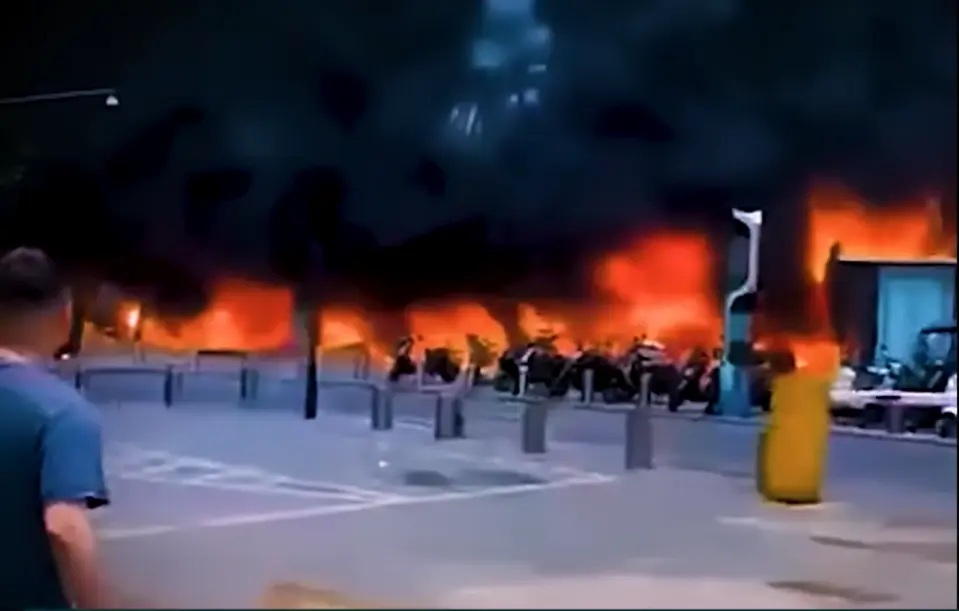
On June 17, 2025, Iran launched a targeted missile strike near Israel’s Mossad headquarters in Herzliya (photo-video-grab)
A Direct Hit: Iran Targets Israel’s Mossad Intelligence Core
In the early hours of June 17, 2025, the skies over Herzliya lit up with fire and smoke as Iranian missiles struck near one of Israel’s most sensitive sites the Mossad headquarters. The Islamic Revolutionary Guard Corps (IRGC) claimed responsibility for the attack, describing it as a “measured and legitimate” response to what it called continued Israeli aggression, including the recent assassination of senior Iranian commanders.
According to Iranian state media, the strike was part of a broader operation involving over 30 missiles aimed at strategic military and intelligence targets across Israel. While Israeli officials confirmed missile interceptions and localized damage, they insisted the Mossad facility itself was not hit claiming instead that a nearby bus parking lot bore the brunt of the impact.
However, video footage and satellite imagery circulating online suggest otherwise. Plumes of smoke rising from the vicinity of the intelligence compound have fueled speculation that the strike may have penetrated deeper than Israel is willing to admit. Tehran, for its part, hailed the operation as a “strategic success,” asserting that it disrupted Israeli security operations and demonstrated Iran’s precision strike capabilities.
Escalation Spiral: Retaliation and Repercussions
This missile strike did not occur in isolation. It followed a series of deadly Israeli airstrikes on Iranian soil, including the targeted killing of Ali Shadmani, a newly appointed Iranian commander, just days after he assumed his post. Iran’s response was swift and calculated, signaling a shift from proxy engagements to direct confrontation.
The IRGC emphasized that the attack was designed to avoid civilian casualties while delivering a clear message to Tel Aviv. Yet, the psychological impact on Israeli citizens was palpable. Sirens wailed across Herzliya, and emergency services scrambled to assess damage and reassure a jittery public.
Meanwhile, the international community watched with growing alarm. Security analysts warned that this tit-for-tat escalation could spiral into a broader regional conflict, especially given both nations’ extensive intelligence networks and missile capabilities. The United States, while calling for restraint, reiterated its support for Israel’s right to self-defense further complicating diplomatic efforts to de-escalate.
Strategic Shockwaves: What This Means for the Region
The reported strike on Mossad’s headquarters is more than a symbolic blow, it’s a strategic gambit. Mossad, Israel’s elite intelligence agency, has long been at the forefront of covert operations against Iranian nuclear and military assets. A successful hit on its nerve center would not only be a propaganda victory for Tehran but also a potential disruption to Israel’s intelligence apparatus.
For Iran, the attack serves multiple purposes: it satisfies domestic calls for retaliation, projects strength to regional allies, and signals to adversaries that Tehran is willing to cross red lines. For Israel, it’s a wake-up call that even its most fortified institutions are not beyond reach.
As both nations dig in, the risk of miscalculation grows. With over 200 Iranian casualties already reported in recent Israeli strikes and mounting civilian losses on both sides, the human cost of this conflict is escalating rapidly.
Stay updated with the latest news on Rapido Updates. Keep yourself updated with The World, India News, Entertainment, Market, Gadgets, Sports, and many more..